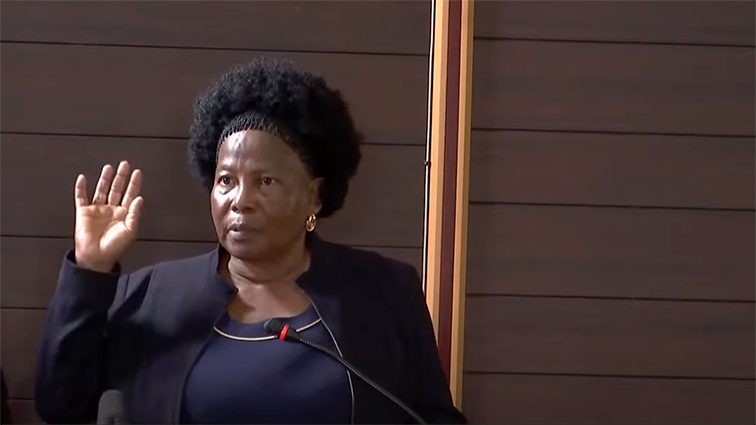Daughter of Luthuli’s shop worker recounts harassment at inquest – SABC News

The daughter of a man who used to work at the shop of the former ANC president, Chief Albert Luthuli, has told the Pietermaritzburg High Court that her family used to be harassed by Apartheid-era police due to their close ties with Luthuli.
Nozizwe KaMabaso-Mhlongo is testifying before the re-opened inquest into Luthuli’s death.
The family wants the court to overturn findings of the initial inquest that ruled Luthuli’s death an accident.
Luthuli died in 1967, allegedly after being struck by a goods train in Groutville, KwaZulu-Natal.
“It was not uncommon to find members of the special branch roaming around our area. In fact, often the doors will be kicked down in the middle of the night, and policeman both black and white would assault the occupants viciously. This included children. My father was beaten up regularly by policeman who would be looking for documents or information on Luthuli. The documents had been hidden either under the house in Groutville or our home in Gledo. When Luthuli was banned repeatedly he could not travel into the town of Stanger. My father would open the shop really early and Luthuli will come and sit in the shop” KaMabaso-Mhlongo elaborates.
The Pietermaritzburg High Court in KwaZulu-Natal has heard that the late former Luthuli was sometimes assisted by the family of his employee to hold secret meetings during the liberation struggle. This has been revealed by the employee’s daughter, Nozizwe kaMabaso-Mhlongo, who is testifying before the re-opened inquest into Luthuli’s death.
VIDEO | Chief Albert Luthuli inquest is set to continue at Pietermaritzburg High Court
Her father Stimela Mabaso, worked for Luthuli at his store. Chief Luthuli was reportedly killed after being struck by a goods train at Groutville in 1967. However, there are doubts about the version provided by the Apartheid era police regarding his death.
Luthuli’s family wants to overturn the findings of the initial inquest which found that his death as accidental.
“When Luthuli was still alive, only the shop stood there, my parents lived in a shack on the premises. Luthuli hid his documents in our shack, although it was constructed of mostly mud, it made for the most inconspicuous meeting area, for political meetings. My earliest recollections are that’s where the most important discussions of a political nature took place; meetings sometimes took place at night as there was no electricity. If it was late, there was no light, this is the last place the special branch would expect for a meeting to be taking place. Mr Mangosuthu Buthelezi was also a frequent visitor,” KaMabaso- Mhlongo says, giving testimony.
Meanwhile KaMabaso-Mhlongo says community members did not want to associate themselves with Luthuli due to fear of being harassed by police.
“As a result of our relationship with Luthuli and his family, we were often ostracised even amongst the community, people did not want to be seen with us or talk to us. When Mthunzi Luthuli’s father two was arrested, no one wanted to go with him to the police station. My mom accompanied him. There were a few white kind people for example … they would look after us on the train, (we) suffered during the time apartheid was the law. There was no peace, honestly, people suffered” KaMabaso-Mhlongo says.
VIDEO | Inquest into the death of Chief Albert Luthuli – 29 April 2025
